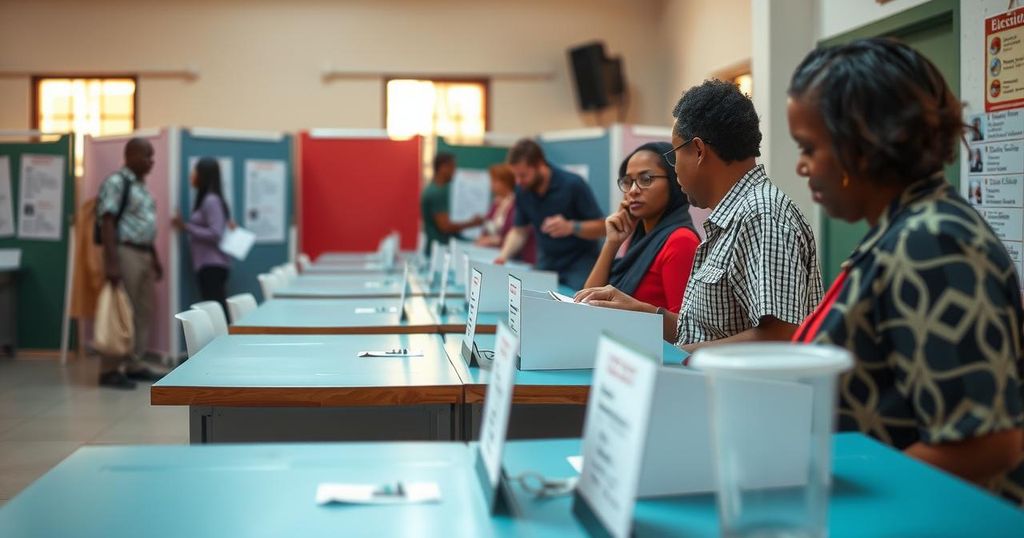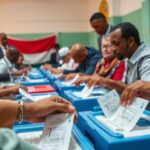Elections
” MASRA, 2024 ELECTIONS, AFRICA, AP, CHAD, DEBY, DEBY ITNO, DEMOCRACY, DJAMENA, ELECTIONS, GOVERNANCE, GOVERNMENT, ID, IDRISS DEBY ITNO, MAHA, MAHAMAT IDRISS DEBY, MAHAMAT ISSA HISSEIN, MOROCCO, N ’ DJAMENA, NATIONAL ASSEMBLY, SAHEL, SU, SUCCES MASRA, TRANSFORMERS, VOTER TURNOUT
Clara Montgomery
Chad’s Parliamentary Elections: Low Turnout and Opposition Boycott Amidst Military Transition
Chadians voted in parliamentary elections marked by low turnout amidst opposition boycott, concluding a three-year military transitional period. Accusations of electoral malpractice have undermined credibility, despite governmental claims of progress toward decentralization and democracy. With significant security challenges facing the nation, the electoral integrity remains in doubt, reflecting deep public skepticism.
On Sunday, Chadians participated in parliamentary and regional elections characterized by a notably low voter turnout amidst a boycott from the principal opposition parties. This election marks the conclusion of a three-year transitional period following military rule, initiated after the death of long-standing leader Idriss Deby Itno. The junta leader, Mahamat Idriss Deby, emphasized the importance of these elections for ushering in a decentralized governance structure desired by the populace. However, multiple opposition parties, including the prominent Transformers party, have dismissed the electoral process as illegitimate, claiming it lacks credibility and accusing the government of manipulating the outcomes. Despite the governmental insistence on the election’s significance, the low turnout reflects widespread skepticism among voters regarding the electoral integrity, with many choosing to abstain from the polls entirely. The elections hold considerable implications for Chad, a nation grappling with substantial security issues, including militant threats and shifting international relations.
Chad, which gained independence from France in 1960, has not experienced a genuine transition of power in decades. The current elections serve as the country’s first parliamentary vote in over a decade, coming after Mahamat Idriss Deby’s controversial assumption of power in 2021 following his father’s death. The transitional government has made efforts to return to democratic governance, yet significant opposition remains amid accusations of electoral malpractice. With over 8 million registered voters, the rural and urban dynamics of voting, especially in the capital N’Djamena, reveal a stark divide between governmental narratives and public confidence.
In conclusion, the recent parliamentary elections in Chad are pivotal yet mired in controversy due to the opposition’s boycott and the low turnout. Mahamat Idriss Deby’s administration has sought to frame these elections as a milestone in democratically transitioning the country’s governance. However, the widespread distrust in the electoral process indicates that many Chadians remain unconvinced of the integrity of this pivotal moment in their political history. The future of Chad’s democracy hinges on addressing these democratic deficits and fostering genuine political participation among its citizens.
Original Source: apnews.com








Post Comment